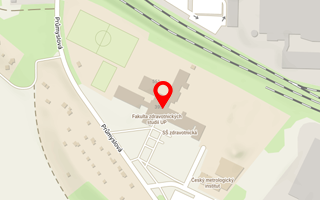Research occurs in four major areas: Data and Systems Research, Health Determinants Research, Precision Research, and Education for Health. See Research projects for an overview of some of the most important topics within these areas.
1. Data and Systems Research
Data and systems research focuses on studying the healthcare system and offering health policy solutions to enhance the quality and efficiency of care. This includes research focused on studying the scope of practice of allied health professionals (e.g. nurses and midwives) and their professional education and development. Furthermore, it includes research using health care records and patient registries.
- The Competent Nurse for the 21st Century: The Analysis and Design of the Optimization of Nursing Education and Professional Practice
-
Key Skill Management in Operating Room - KSMOR
Other projects:
- Evaluation of patients‘ satisfaction in 5 hospitals of acute care of the Hospitals of the Pardubice Region
- Evaluation of patients satisfaction with follow-up care
- Evaluation of employees‘ satisfaction in the Hospitals of the Pardubice Region
- The social climate and its impact on the quality of care
- Quality management in home care
- Managerial competencies in nursing
- Safe handling of medicinal products
- Quality and risk management in perioperative care
- Body temperature management in perioperative care
- Assessing quality of care in a historical context
- Health-related infections and their prevention
- Pain management
2. Health Determinants Research
Health determinants research explores the health care experiences and health outcomes of diverse socio-economic, demographic and cultural groups as well as of specific patient populations in the Czech Republic. We emphasize research focused on patient assessment and symptom management and on exploration of the quality of life in specific populations. In addition, we aim to shed light on the impact of various socio-economic, demographic, cultural, and historical factors and events on the well-being of individuals, groups, and communities.
- Management of diagnostics and therapy of swallowing disorders
- Developing a method for quantitative assessment of the contribution of occupational risk factors to the etiology of chronic low back diseases and defining clinical and hygiene criteria for identification of these conditions as occupational diseases
Other projects:
- Pain assessment in selected groups of patients
- Evaluation of life satisfaction of selected groups of patients / individuals
- Dysphagia screening
- Subjectively perceived difficulties with swallowing in selected groups of patients / individuals
- Subjective communication problems of people with impaired hearing
- Examination and evaluation of hearing disorders of workers working in noisy environments and personal protective equipment against noise
- Screening of hearing in newborns
- Quality of life of patients with impaired hearing
- Examination of smell
- Quality of life of people with olfactory disorders
- Assessment of quality of life and speech difficulties in patients with laryngeal disease / larynx carcinoma
3. Precision Research
Precision research is based on precise measurements using modern procedures and technologies (e.g. modern equipment, tools, and supplies).
- Chemosensory Perception and Development of its Measuring Device
-
Portable audiometer
Other projects:
- Neonatal screening of hearing using otoacoustic emissions
4. Education for Health
Research focused on education for health aims to enhance the knowledge and skills of health-care professionals and the lay public. One part of the efforts aims to shed light on health literacy and its impact on health-promoting behaviours of diverse socio-economic, and demographic groups and specific patient populations.
Projects:
- Health literacy in patients with chronic pain
- Development of a diabetes knowledge questionnaire
- Readability of patient education materials

